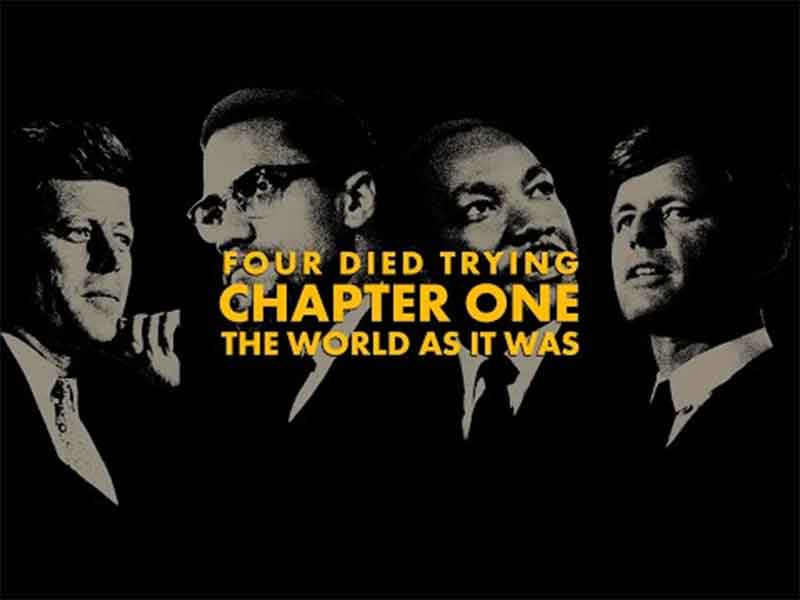Exploring Aristotle’s virtue ethics and Marx and Engels’s communist individual through the 1993 movie, Groundhog Day.

Groundhog Day (1993) is a classic of philosophical cinema. I was first asked to watch it as an undergraduate philosophy student many years ago. As an instructor myself now, the movie has been a staple of my intro to philosophy classes for years. It concludes our ancient philosophy section (which coincidentally we just finished today, on Groundhog Day), and is designed to be read in light of Aristotle’s virtue ethics.
The movie follows the life of Phil Connors, a Pittsburgh weather reporter asked to cover Groundhog Day in Punxsutawney, Pennsylvania, where a sacred tradition says that if the groundhog sees a shadow after leaving its den, there will be six more weeks of winter left, if not, then the spring will come early.
Phil is the typical douchebag, a narcissistic elitist a-hole that thinks he’s better than everyone else because he can string a few lines together nicely on camera. When the weather storm he wrongly predicted wouldn’t hit arrives, he tells a cop dealing with road traffic that he ‘makes the weather’.
The next morning at 6 a.m. the same Sonny and Cher ‘I Got You Babe’ tune plays as the previous day to open up the radio broadcast. After overcoming the initial shock, Phil comes to see this as an opportunity. Like Glaucon’s ring of Gyges story in Plato’s Republic, Phil accepts that the silver lining in living the same day over and over is the fact that he can do anything and not be held responsible. He indulges in gluttony, stealing, seducing for sex, etc. He lives the life whose telos is captured by instant gratification and shallow pleasures. This is the life lived in accordance with the pleasure rooted understanding of happiness, the first of three described in Aristotle’s ethics.
Pretty soon a crisis of meaning ensues. Shallow ephemeral pleasures are insufficient. They make life unbearable. He turns to his producer, Rita, whose character could not be any more different than his own. But because no substantive transformation has occurred, Phil’s interaction with her is also shallow. It is rooted in a form of social gratification Aristotle describes as the second insufficient form of thinking of happiness. He seeks simply to ‘get her in the bag’, to use her for pleasure. But Rita, being the virtuous woman she is, sees right through this. She notices the real intentions behind his seemingly virtuous performance, and never allows these to achieve fruition. After countless times of repeating a day-long date with her in hopes of getting her to bed, he finally calls quit. Rita’s rejection shows us something central to the virtuous individual Aristotle envisions – virtuous actions, besides being a component of consistent virtuous habits, are conjoined with intentionality, with the action being taken not for some other sake (for instance, to sleep with Rita) but because it is recognized as a virtuous action.
Following Rita’s rejection, Phil turns to a wide array of different forms of suicide. He expresses, through this dark turn in the movie, a likely end for the sorts of meaningless lives that center their conception of happiness in the ephemeral and shallow forms of consumption and sociality Phil exhibits throughout the beginning of the movie. A crisis of meaning is here taken to its utmost intensity – where that central philosophical question Camus reflects on in The Myth of Sisyphus, whether life is or is not worth living, is answered negatively.
Phil’s crisis of meaning is not unique to narcissists like himself. Our societies prioritize happiness as synonymous with having and consuming. You are judged by what you have, what you own, not what you are. This distinction in the having and the being mode of life was already explored by Erich Fromm last century in his book, To Have or To Be. Our contemporary capitalist societies prioritize precisely those values that led Phil to suicide. Their emptiness and alienation from what constitutes a fulfilling human life finds its natural end, when carried out all the way, in the notion that life is not worth living. For Aristotle, this meaninglessness is rooted in the disconnection between our appetitive driven activities and the rational capacities which make us uniquely human. When those capacities aren’t developed, when the appetites and shallow pleasures govern our lives, dictate our ends, the lives we live are little different than those of any other animal. That which is uniquely human in us is drowned under the will of our animal appetites. It is the charioteer in Plato’s Phaedrus losing control of the horses, a ride which can only end in disaster.
After he reaches the depth of despair in suicide, Phil rectifies, and comprehensively adopts virtuous habits in place of his previous routines. He aligns his habits in accordance with reason, as Aristotle would say, and thereby creates the conditions for an actually fulfilling human existence. He develops both intellectual (reading, learning piano, ice sculpting, better at job – quotes Chekhov in reporting) and moral (helps homeless, more caring about those around him, leaves the narcissism behind, helps old ladies change tire, helps choking man and kid falling from tree, etc.) virtues of various kinds. By being the best person he could possibly be, that is, by committing himself to excellence (arete) in all his affairs, Phil becomes the life of the Punxsutawney night party, where he is bought by Rita for nearly 340 bucks.
The experience with Rita, who falls in love with him that night, confirms his actual transformation towards a rational life of virtue, the sort of life that is conducive to genuine happiness, to fulfillment and contentment. This is a life in accordance with the pursuit of happiness qua eudaimonia, the form Aristotle held genuine happiness took for human beings. A life embedded in the commitment to excellence (arete), to intellectual and moral virtue – a life lived in accordance with reason.
There is a scene where a worker tells Phil that his repetition of the same day is basically what his life is. In our societies the development of various forms of virtue are intimately tied to the wealth we have, whether directly (no poor working family can afford the piano lessons Phil took) or indirectly (most working people, after spending most of their time at work, will not have the time or energy to develop some of the virtues Phil did). Besides the cultural promotion of the shallow hedonism Phil manifests at the beginning of the film, the capitalist mode of life creates serious barriers for projects of human flourishing and fulfillment. It is damn near impossible to prioritize virtue when you have to give 8-10 hours of your day working to make someone else rich, whilst you remain poor and burdened by debt.
The Aristotelian project of eudaimonia, to be a generalized reality, requires a form of life that places humanity over profits, that prioritizes creating the conditions for maximum human flourishing over all other private considerations. What is the transformed Phil if not a modern variation of the virtuous communist individual performing a variety of non-fixated social activities described by Marx and Engels in The German Ideology? — “In communist society, where nobody has one exclusive sphere of activity but each can become accomplished in any branch he wishes, society regulates the general production and thus makes it possible for me to do one thing today and another tomorrow, to hunt in the morning, fish in the afternoon, rear cattle in the evening, criticise after dinner.” This is why, as various scholars have observed, the goal of Aristotle’s ethics resembles the higher phase of communist society described by Marx. The communist project, in a certain sense, seeks to create a form of life that allows Aristotle’s virtue and fulfillment centered ethics to become a reality for all of humanity.
Carlos L. Garrido is a Cuban American philosophy instructor at Southern Illinois University, Carbondale. He is the director of the Midwestern Marx Institute and the author of The Purity Fetish and the Crisis of Western Marxism (2023), Marxism and the Dialectical Materialist Worldview (2022), and the forthcoming Hegel, Marxism, and Dialectics (2024). He has written for dozens of scholarly and popular publications around the world and runs various live-broadcast shows for the Midwestern Marx Institute YouTube.















































